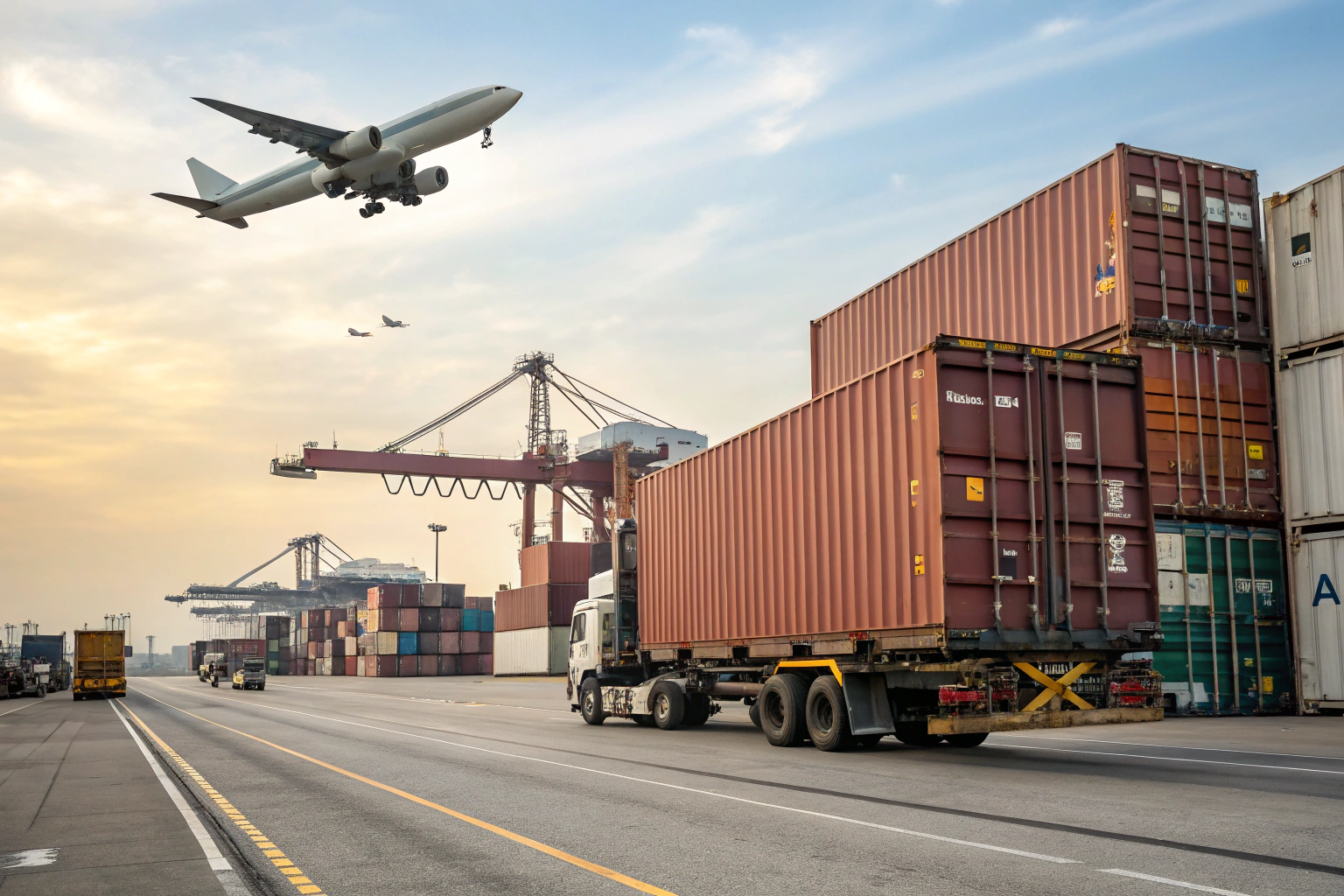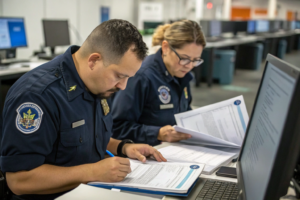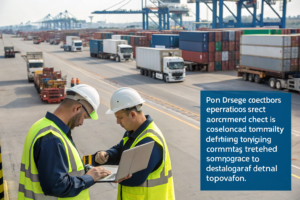Importing goods from China to the United States often feels overwhelming. Many business owners struggle with complex customs rules, sudden fees at ports, and shipping delays. These challenges reduce profit margins and make it harder to plan operations with confidence.
DDP shipping addresses these issues by offering a complete, door-to-door solution. Importers pay one fixed rate that includes transport, customs clearance, taxes, and delivery, which reduces risk and simplifies the supply chain.
When I first started serving U.S. clients, I noticed their biggest concern was hidden costs and unpredictable delivery times. After helping them switch to DDP, they found shipping more transparent and reliable. That stability is why DDP has become a preferred option for American importers.
What Are the Key Benefits of DDP Shipping?
Every importer worries about surprise charges when their goods reach the U.S. port. They also dislike dealing with multiple agents for customs, tariffs, and inland trucking.
The advantage of DDP shipping is that it bundles all these services into one solution: freight, customs duties, port fees, and final delivery. Importers only need to manage one invoice, making planning simple and predictable.
For instance, one of my clients who imports seasonal fashion items used to face customs delays and extra storage charges. After choosing DDP, his shipments arrived directly at his warehouse on time. This allowed him to restock during peak shopping seasons, boosting his revenue.
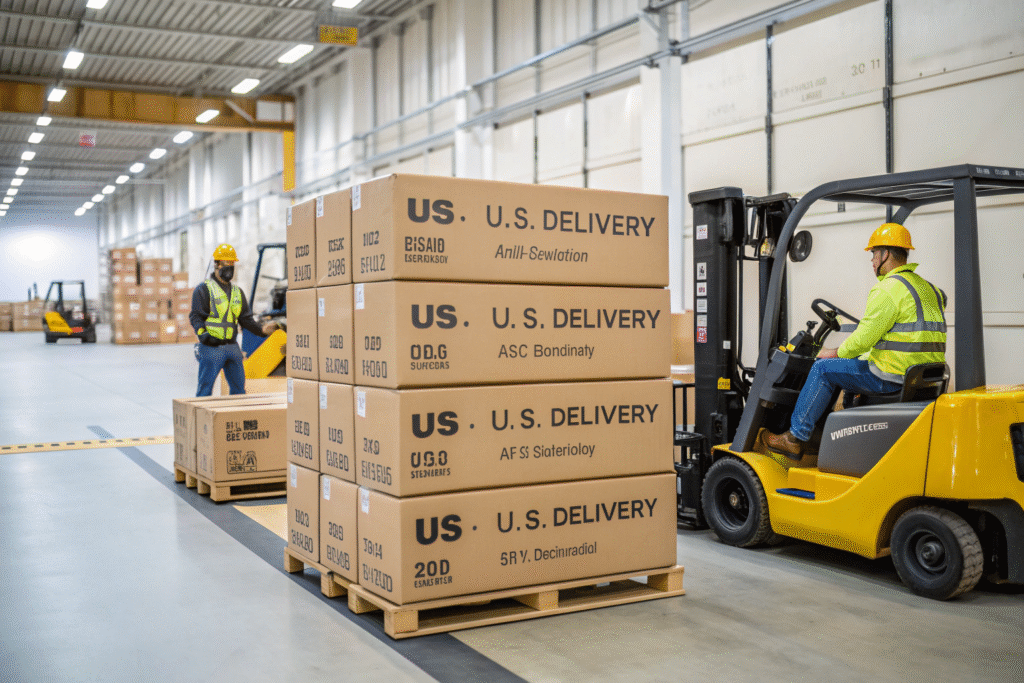
How Does DDP Reduce Unexpected Costs?
Hidden port charges and fines often hurt businesses. Under Incoterms rules, DDP makes the seller responsible for duties and taxes. This protects the buyer from unplanned expenses. Sites like Freightos also explain that DDP simplifies cost management for importers.
Why Is Predictability Important for Importers?
Timely delivery is critical for U.S. retailers and wholesalers. DDP shipping offers a clear schedule, allowing importers to plan inventory. As Investopedia notes, international trade terms improve consistency. Likewise, Trade.gov highlights that predictable supply chains make businesses more competitive.
How Does DDP Simplify Customs Clearance?
Customs is often the hardest part of importing. Missing paperwork or incorrect declarations can cause days or even weeks of delay.
With DDP, the freight forwarder handles customs clearance on behalf of the importer. All documents, tariffs, and approvals are managed before the shipment arrives, avoiding unnecessary delays.
I once worked with a client importing giftware who lost almost three weeks due to errors in customs paperwork. After switching to DDP, his shipments passed smoothly, saving time and helping him keep cash flow stable.
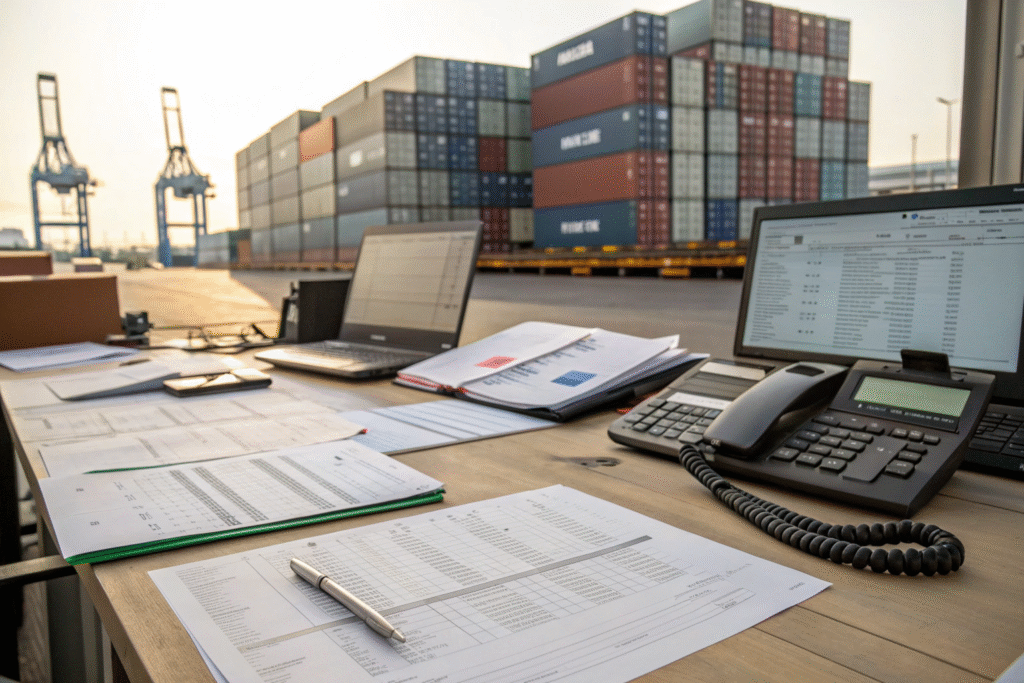
What Documents Are Needed for Customs?
Importers often need a Bill of Lading, commercial invoice, and packing list. Errors in these documents can cause costly delays. According to CBP.gov, accuracy is vital for clearance. Under DDP, professionals prepare these documents correctly.
How Does DDP Improve Compliance with Regulations?
Agencies like the FDA and USDA have strict product rules. DDP forwarders work directly with these bodies to secure approvals. This reduces the risk of rejection, especially for goods like apparel with labeling rules or food items with safety standards.
Is DDP Shipping Cost-Effective for U.S. Businesses?
For U.S. importers, the first question is always about price. At first glance, DDP may seem more expensive than other options. But in reality, it usually saves money.
DDP avoids hidden costs such as port storage, customs penalties, and last-mile trucking surprises. When you add these hidden expenses to traditional shipping, DDP often turns out to be cheaper overall.
One of my New York clients compared DDP with CIF for electronic accessories. He discovered that DDP saved him 15% after removing unexpected terminal fees.
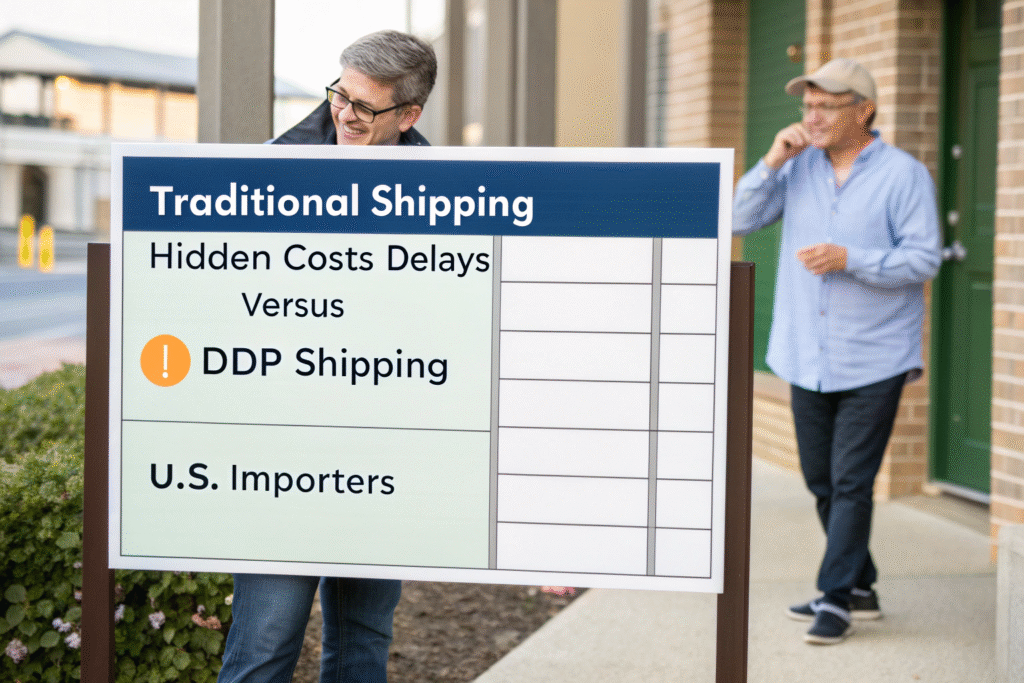
How Do Importers Calculate Total Landed Cost?
The International Trade Administration defines landed cost as the sum of product, shipping, duties, and delivery. Tools like SimplyDuty offer calculators to check costs. Since DDP covers all parts of the process, the calculation becomes much simpler.
Why Does DDP Save Money in the Long Term?
Avoiding delays is worth more than small savings in freight. Logistics Bureau shows that efficient supply chains reduce inventory costs. Similarly, Supply Chain Digital proves that streamlined logistics increase profit margins over time.
Why Do U.S. Importers Prefer DDP Over Other Shipping Terms?
When comparing shipping terms, many importers prefer DDP over EXW, FOB, or CIF. The main reason is simplicity.
DDP gives importers peace of mind, because the seller or freight forwarder manages everything—from pickup at the factory in China to final delivery in the U.S. warehouse.
Over the years, I’ve seen clients switch to DDP and never look back. The reduced stress and reliability it brings are worth the investment.
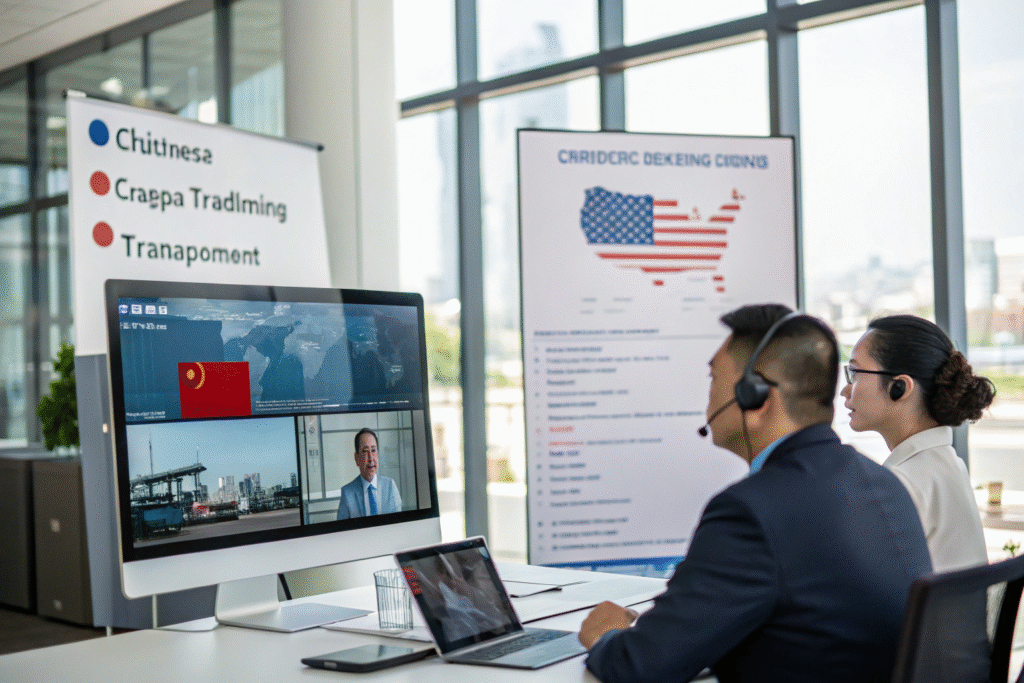
How Does DDP Compare with FOB and CIF?
With FOB terms, the buyer takes responsibility once goods leave the port. Under CIF, the buyer still manages customs. But with DDP, the seller covers everything, making it a hands-free option for importers.
What Makes DDP More Attractive for Small Businesses?
Small businesses often lack logistics teams. On Alibaba.com, many suppliers already offer DDP for convenience. Flexport also explains how outsourcing customs and shipping tasks helps smaller firms focus on sales and growth.
Conclusion
DDP shipping has become the most reliable option for U.S. importers who want stability and transparency. By combining freight, customs, duties, and last-mile delivery into one package, DDP reduces risk and saves time. For companies importing clothing, accessories, electronics, or gifts from China, DDP is more than a shipping method—it is a strategic tool that supports long-term growth.
